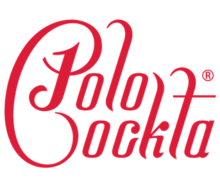This article needs additional citations for verification .(June 2013) |
 | |
| Type | Soft drink |
|---|---|
| Manufacturer | Zbyszko (2000s) |
| Country of origin | Poland, based on Slovenian Cockta |
| Introduced | 1970s; 2000s |
| Discontinued | 1980s |
| Flavour | cola |
| Related products | Coca-Cola, Pepsi, Kofola, Cockta |
| Website | https://zbyszko.com.pl/category/polo-cockta/ |
Polo-Cockta (sometimes written as Polo Cockta or Polo-Cocta) is a Polish cola drink introduced in the 1970s. Polo-Cockta was introduced as a substitute for the original Coca-Cola, which was unavailable in Polish shops due to limits on exports from the US to soviet bloc countries. At first it was based on Cockta, a very popular drink from Slovenia (then SFR Yugoslavia). [1]
Polo-Cockta was discontinued during the 1980s, but has been revived for a few years by a private company Zbyszko which acquired all the rights to the brand, reacting to the ever-popular demand for PRL-stylised products, an element of "PRL nostalgia". The taste of Polo-Cockta is sometimes described as a mixture of Coca-Cola and Pepsi.
For a while Polo-Cockta was renamed Polo Cola, without change to the product. However, in 2016, Polo Cola was renamed back to Polo-Cockta.
Polo-Cockta has made a significant appearance in the Polish film Kingsajz by Juliusz Machulski, where it was a major plot device.